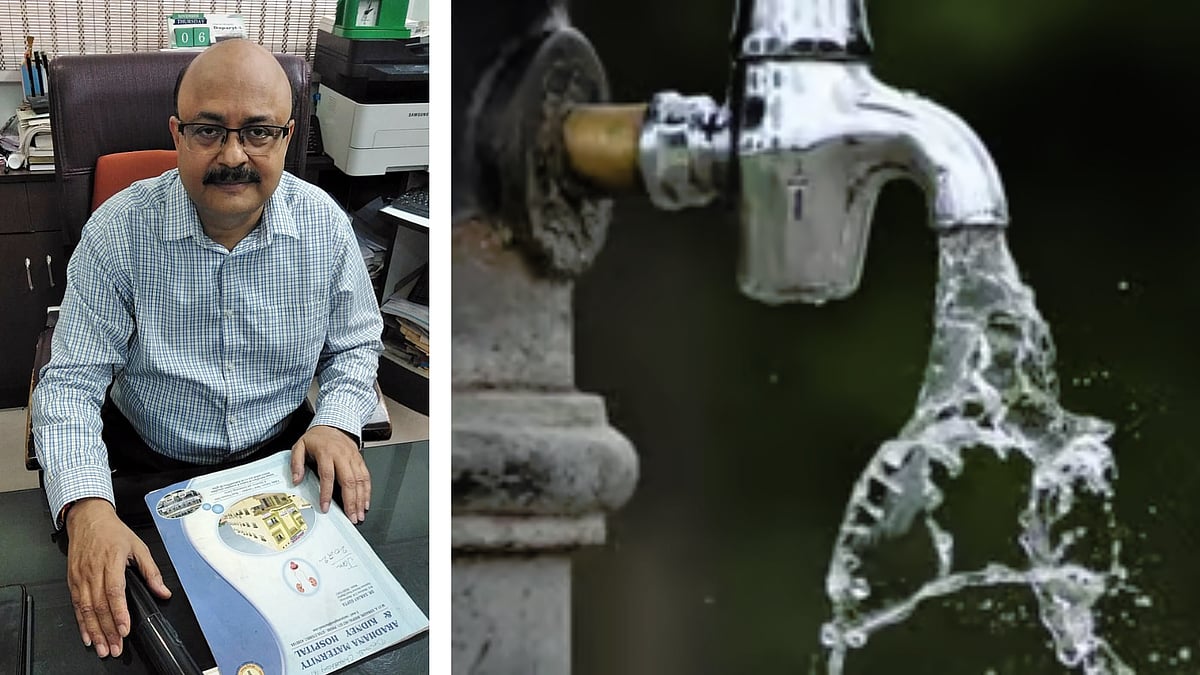Bhopal (Madhya Pradesh): Prolonged consumption of high-salt and mineral-rich water, commonly found in Bhopal, may contribute to kidney stone formation, warns Dr Sanjay Gupta, senior nephrologist.
In an interview with Free Press, he explained how high levels of calcium, magnesium, and other dissolved solids (TDS) in tap and borewell water can increase kidney-related health risks, especially for those with a family history of kidney stones.
Kidney stones are increasingly common. Some believe liquor and cold drinks help relieve pain. Is this true?
No, that’s a misconception. Kidney stone symptoms usually include sharp, cramping pain in the back and side, often radiating to the lower abdomen or groin. Cold drinks or liquor offer no relief, in fact, some may worsen the condition. Many also self-medicate or consult unqualified practitioners, which delays proper treatment and worsens the condition. Always consult a qualified doctor.
Does water quality affect kidney stone risk?
Absolutely. Bhopal’s water often contains high levels of minerals and salt. Over time, this can lead to stone formation, particularly in individuals with a family history. Minerals can start crystallising in the kidneys. Cold drinks, especially colas and other carbonated beverages, contain phosphoric acid (orthophosphate), which also contributes to stone formation.
What is CKD (Chronic Kidney Disease)?
CKD involves long-term damage to kidneys, reducing their ability to filter blood properly. Early stages often show no symptoms, making it a "silent killer." As it progresses, patients may experience fatigue, nausea, swelling in limbs, dry skin, and changes in urination. Diabetes and high blood pressure are major risk factors. Early detection is key, as delays can lead to dialysis or transplant.
Is kidney disease hereditary?
Yes, it can be. Though not as common as diabetes or hypertension-related kidney issues, certain conditions like Polycystic Kidney Disease (PKD) are inherited. PKD causes fluid-filled cysts in the kidneys, leading to blood and protein in the urine.
UTI symptoms often get confused with malaria and typhoid. Why?
UTIs can cause high fever, back pain, and vomiting — symptoms that overlap with malaria or typhoid. This creates diagnostic confusion. A UTI is an infection anywhere in the urinary system, commonly caused by bacteria entering via the urethra and spreading to the bladder or kidneys. Proper diagnosis is essential to avoid mistreatment.









